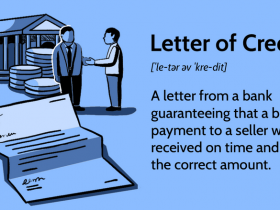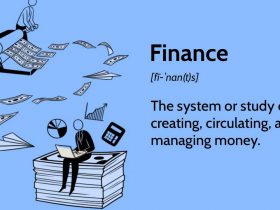In case your financial institution fails, the very first thing to remember is that you simply gained¡¯t lose all of your deposits. The Federal Deposit Insurance coverage Corp. (FDIC) insures financial institution accounts as much as $250,000 per depositor, per account class. So, except your financial institution shouldn’t be insured by the FDIC or you’ve deposited greater than the FDIC restrict, your cash is secure in case your financial institution fails.
The FDIC will notify you within the case of a financial institution failure, just like the Silicon Valley Financial institution and Signature Financial institution closures in March 2023. Your insured deposits will both be moved to a different FDIC-insured financial institution or paid out to you.
Study extra about why banks fail, how FDIC insurance coverage works that will help you recoup your cash, and find out how to defend your funds.
Key Takeaways
- Usually, a financial institution failure is the results of owing extra to collectors and depositors than what their property are value.
- In case your financial institution fails, as much as $250,000 of deposited cash (per individual, per account possession sort) is protected by the FDIC.
- When banks fail, the most typical end result is that one other financial institution takes over the property and your accounts are merely transferred over. If not, the FDIC can pay you out.
- Funds past the protected quantity should be reimbursed, however the FDIC doesn’t assure this.
Why Do Banks Fail?
Banks sometimes fail once they develop into bancrupt, or when the worth of their property drop to ranges beneath what they owe to collectors and depositors.
Banks don’t maintain in a vault the entire money that’s deposited. As an alternative, these funds are lent out to different clients or used to make investments. Banks can develop into bancrupt, for instance, in the event that they make dangerous investments and market situations trigger them to lose cash, or in the event that they lend to folks or companies that don¡¯t meet their obligations.?
Be aware
When clients develop into conscious of a financial institution¡¯s monetary stress, they could rush to withdraw their cash out of worry that the financial institution will fail. That is known as a financial institution run. When too many depositors clear their accounts directly, that may truly trigger the financial institution to fail.
So, What Does Occur If My Financial institution Fails?
As soon as a financial institution can not afford to make good on its obligations to clients and collectors, the FDIC steps in. Right here¡¯s what sometimes occurs.
- The FDIC pronounces that the financial institution is closed, and the FDIC is appointed as its receiver so it will possibly assist use the financial institution¡¯s property to pay depositors and collectors.
- Usually, the FDIC will attempt to discover one other banking establishment to amass the failed financial institution. If that occurs, clients¡¯ accounts will merely switch over to the brand new financial institution. You’re going to get details about the transition, and you’ll possible get new debit playing cards and checks (if relevant).
- If one other financial institution doesn¡¯t take over the property, the FDIC will ship depositors a reimbursement examine ¡°as quickly as doable.¡±
- The FDIC shouldn’t be obligated to return funds past the $250,000 that’s insured, however you continue to have some recourse when you¡¯ve had greater than that in an account class. First, you possibly can request a receiver¡¯s certificates, which helps you to declare your funds when the financial institution¡¯s property are liquidated.
One of the best ways to keep away from dropping cash in case your financial institution fails is to not exceed the $250,000 FDIC-insured restrict. In case you have greater than that, you possibly can open an account both in one other financial institution, or in the identical financial institution however with a unique possession class (extra on possession classes within the desk beneath).
Examples of Financial institution Failures?
Financial institution failures are quite a bit much less frequent because the FDIC began operation in 1934. Earlier than that, hundreds of banks failed in the course of the Nice Despair¡ª4,000 in 1933 alone. However financial institution failures nonetheless happen. In some instances, broader market traits can set off financial institution failures, equivalent to when 25 banks failed in 2008 amid the housing disaster. Banks can fail for different causes as nicely, equivalent to inside mismanagement.
Let¡¯s take a look at some notable financial institution failures:
- Silicon Valley Financial institution and Signature Financial institution: In what many information shops known as the primary social media financial institution run, Silicon Valley Financial institution and Signature Financial institution abruptly closed in 2023. Information of their monetary troubles unfold on platforms like Twitter (now X), inflicting clients to panic and pull their cash.
- The biggest financial institution failure: Washington Mutual (WaMu) is the most important financial institution failure when it comes to property. The financial institution collapsed in the course of the 2008 monetary disaster at a time when it had $307 billion in property. JPMorgan Chase took over WaMu.
- The final massive in-person financial institution run: Continental Illinois Nationwide Financial institution and Belief Co. was one of many largest U.S. banks when it discovered itself in monetary bother in 1984. When rumors started to unfold, there was a run on deposits on the financial institution¡¯s branches. Depositors withdrew $10.8 billion.
565
The variety of banks which have failed since 2000, as of April 10, 2023. The FDIC¡¯s Failed Financial institution Record consists of particulars on them.
Do You Lose Any Cash If Your Financial institution Closes?
In case your deposits are below the FDIC insurance coverage limits ($250,000 per depositor, per possession sort), you then gained¡¯t lose any cash in case your financial institution closes. However it¡¯s necessary to know what varieties of accounts are insured, and what the restrict means.
| Accounts Protected by FDIC | Accounts Not Protected by FDIC |
| Checking | Inventory or bond investments |
| Financial savings | Mutual funds |
| Certificates of deposit (CDs) | Cryptocurrency |
| Cash markets | Life insurance coverage insurance policies |
| Negotiable Order of Withdrawal (NOW) accounts | Annuities |
| Cashier¡¯s checks, cash orders, or any bank-issued examine | Municipal securities |
| Secure deposit containers | |
| U.S. Treasury payments, bonds, or notes |
You additionally want to concentrate to possession classes.
| FDIC Deposit Insurance coverage Protection Limits by Account Possession Class | |
|---|---|
| Single accounts (owned by one individual) | $250,000 per proprietor |
| Joint accounts (owned by two or extra folks) | $250,000 per co-owner |
| Sure retirement accounts (consists of IRAs) | $250,000 per proprietor |
| Revocable belief accounts | $250,000 per proprietor, per distinctive beneficiary |
| Company, partnership, and unincorporated affiliation accounts | $250,000 per company, partnership, or unincorporated affiliation |
| Irrevocable belief accounts | $250,000 for the noncontingent curiosity of every distinctive beneficiary |
| Worker profit plan accounts | $250,000 for the noncontingent curiosity of every plan participant |
| Authorities accounts | $250,000 per official custodian (extra protection could also be obtainable in sure conditions) |
In case you have financial institution accounts with credit score unions, these funds are protected by the Nationwide Credit score Union Administration (NCUA), which federally insures credit score unions.
What If You Have A number of Accounts?
In case you have a number of accounts at one financial institution, equivalent to a person checking account and financial savings account in the identical financial institution with a complete of $300,000, then FDIC insurance coverage gained¡¯t absolutely defend you. It solely insures as much as $250,000 per depositor per account possession sort. You could possibly lose $50,000 as a result of, on this case, the accounts are in the identical possession class.
Nevertheless, when you had a joint checking account together with your partner and your personal financial savings account, then FDIC insurance coverage would absolutely defend you as a result of joint accounts and particular person accounts are two totally different possession classes.
Even when you had greater than the $250,000 restrict deposited, you may not lose any of your funds. If one other financial institution takes over, your cash will merely switch there. An instance of this may be seen within the failure of First Republic Financial institution and its subsequent buy by JP Morgan Chase in Could of 2023. If not, the federal authorities might cowl the rest of your funds, because it provided to do after the Signature Financial institution and Silicon Valley Financial institution failures. In the end, all buyer property have been protected when Flagstar Financial institution took over Signature Financial institution, and First Residents Financial institution & Belief Co. took over Silicon Valley Financial institution.
Who Takes Over a Failed Financial institution?
When a financial institution fails, one other financial institution will generally take over the property. When this occurs, depositors and/or debtors of the failed financial institution will robotically develop into clients of the brand new financial institution. If the FDIC doesn¡¯t discover one other financial institution to take over, it’s going to ship out checks for the insured deposit quantities, sometimes inside a number of days.
When a Financial institution Fails, The place Does Insured Cash Come from?
The FDIC maintains the Deposit Insurance coverage Fund (DIF), which it will possibly draw from if it must pay out insured balances if a financial institution fails. That fund can be used to assist resolve failed banks. The DIF is funded by insurance coverage premiums that banks pay known as assessments, in addition to from curiosity earned on investments in U.S. authorities obligations.
What Occurs to My Direct Deposits If My Financial institution Closes?
What occurs to your direct deposits when your financial institution fails depends upon the destiny of the failed financial institution. If one other financial institution takes over, your direct deposits will robotically redirect to the brand new financial institution. If there isn’t any buying financial institution, then the FDIC will attempt to discover an establishment to briefly deal with direct deposits, primarily so Social Safety recipients don’t expertise any delays. Impacted clients might be up to date about any adjustments to their direct deposits.
What Occurs to Checks and Computerized Funds That Have Not Cleared an Account Earlier than My Financial institution Is Closed?
In case your financial institution fails and you’ve got checks that didn¡¯t clear or computerized funds arrange, you may be answerable for working together with your collectors and lenders to make alternate cost preparations. Your initially scheduled cost might be returned unpaid with a notation that your financial institution is closed. Nevertheless, this is not going to influence your credit score so long as you arrange an alternate cost technique.
Can I Entry My Secure Deposit Field If My Financial institution Closes?
Secure deposit containers are bodily saved in a financial institution department, and you may normally retrieve the contents the day after the financial institution closure. If one other financial institution acquires your financial institution, your department ought to reopen the following enterprise day, and you may take away your gadgets at the moment. In any other case, the FDIC will ship you a letter with directions for find out how to get your gadgets.
The Backside Line
Although financial institution failures get numerous media consideration, buyer funds are normally not severely impacted. So long as you do enterprise with an FDIC-insured establishment and maintain lower than $250,000 per account possession class, your funds might be secure in case your financial institution fails. Nevertheless, you may face some minor inconveniences, equivalent to ready for a brand new debit card or updating your computerized funds.













Leave a Reply